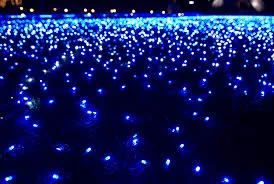In a groundbreaking study published in Nature Biomedical Engineering, researchers at Karolinska Institutet have pioneered a novel targeted cancer treatment using extracellular vesicles (EVs), the small membrane bubbles cells use to communicate. This innovative approach has demonstrated a significant reduction in tumor growth and improved survival rates in mice models of breast cancer and melanoma.
Extracellular vesicles, often dubbed the body’s ‘message in a bottle,’ carry various signaling molecules between cells. The scientific community has shown growing interest in these vesicles for their potential in delivering therapeutic agents.
A Novel Approach to Targeting Tumors
The research team at Karolinska Institutet has successfully engineered a method to load EVs with chemotherapeutic drugs and attach antibodies specific to tumor cells on their surface. These antibodies not only direct the EVs to the cancer cells but also act as immunotherapeutic agents, amplifying the treatment’s effectiveness.
Oscar Wiklander, physician and researcher at the Department of Laboratory Medicine at Karolinska Institutet and joint first author with Doste Mamand, highlights the versatility of this method. “By attaching different antibodies to extracellular vesicles, we can target them to virtually any tissue and load them with various types of drugs. This flexibility means the treatment could be adapted for other diseases and cancer types.”
Enhanced Specificity and Reduced Side Effects
One of the primary advantages of this new treatment is its potential to specifically target tumor cells while sparing healthy tissues, which is a significant limitation of many current cancer therapies. The researchers are optimistic about the potential to further refine and enhance this treatment by exploring various combinations of antibodies and therapeutic agents.
“Among other things, we want to investigate the possibility of delivering mRNA as an anticancer drug,” says Samir EL Andaloussi, Professor at the Department of Laboratory Medicine and the study’s senior author. “Ultimately, we hope this can lead to a new treatment platform that can improve efficacy and reduce side effects in difficult-to-treat diseases, especially cancer.”
Funding and Future Directions
This promising research received funding from several prestigious organizations, including the Swedish Cancer Society, the Swedish Research Council, the European Research Council (ERC), and CIMED. Several researchers involved in the study have financial ties to Evox Therapeutics, indicating a potential for future clinical applications and commercial development.
As the researchers continue to explore this novel treatment strategy, the scientific community remains hopeful that this could mark a significant step forward in the fight against cancer.
Publication Reference
The detailed findings of this study are available in the article titled “Antibody-displaying extracellular vesicles for targeted cancer therapy” by Oscar P. B. Wiklander, Doste R. Mamand, and colleagues, published online in Nature Biomedical Engineering on May 20, 2024 (doi: 10.1038/s41551-024-01214-6).











